“Music is always political” – An Interview with Pavel Milyakov

The role of community has played a very important role in your career – from punk bands, to the club scene in Moscow, to online communities (your Facebook page, Bandcamp, etc.), and now on to Patreon and the vast community actively advocating and fighting against the Russian invasion in Ukraine. What kind of roles do you play in different communities? How has this changed? Are you a leader, or a follower? How have you developed as a community member? And what do these different places – from clubs and stages to social media pages and interviews – do to the way you think, perform, and act?
Community is a very important and strong tool for building decentralised initiatives. It can be really powerful, especially in the moments of crisis. You can see nowadays how even small groups of people from different backgrounds unite together and accumulate significant financial support for Ukrainian resistance and volunteer needs. I don’t see myself as a leader of any community, though having an audience on INSTAGRAM and other social media, I acknowledge that I can use it to speak out and share important information which can help people to realise what’s really happening in Ukraine and discover the ways they can help. I also use BANDCAMP and PATREON as a source of income for providing financial help to Ukrainian funds and volunteer initiatives
“I get a lot of threats from regime supporters for speaking out.”
How easy was the decision to position yourself as a Russian artist who is vocally against the actions of your country? It’s a position many artists take of course (to be anti-government) but the potential consequences are far more serious in your case.
It was an instant reaction to the full-scale invasion and I did my posts about it before the invasion started. I have friends and family who live in Ukraine. I get a lot of threats from regime supporters for speaking out. r*ssia does not have a democratic courts and human rights. Police violence is brutal there and has strong historical roots coming from the Gulag, KGB and other oppressive Soviet institutions. It is deeply integrated into the cultural, social and political systems, so in a way the whole “state” operates like a huge prison.
You’re constantly donating your income to Ukrainian charities and are visibly active in protesting against the Russian regime. Have you been a political activist before the invasion?
I condemned the r*ssian regime before the invasion and I always positioned myself against this regime. There are a lot of sadists, snitches, stalinists, and nationalists. Completely unpunished, justifying their dirty wars against the independence of those countries who chose to be free from the Soviet empire and its “cultural heritage”. There are USSR-nostalgic masses of people inside and outside the country who support and legitimise this regime and its vile wars against independent nations.
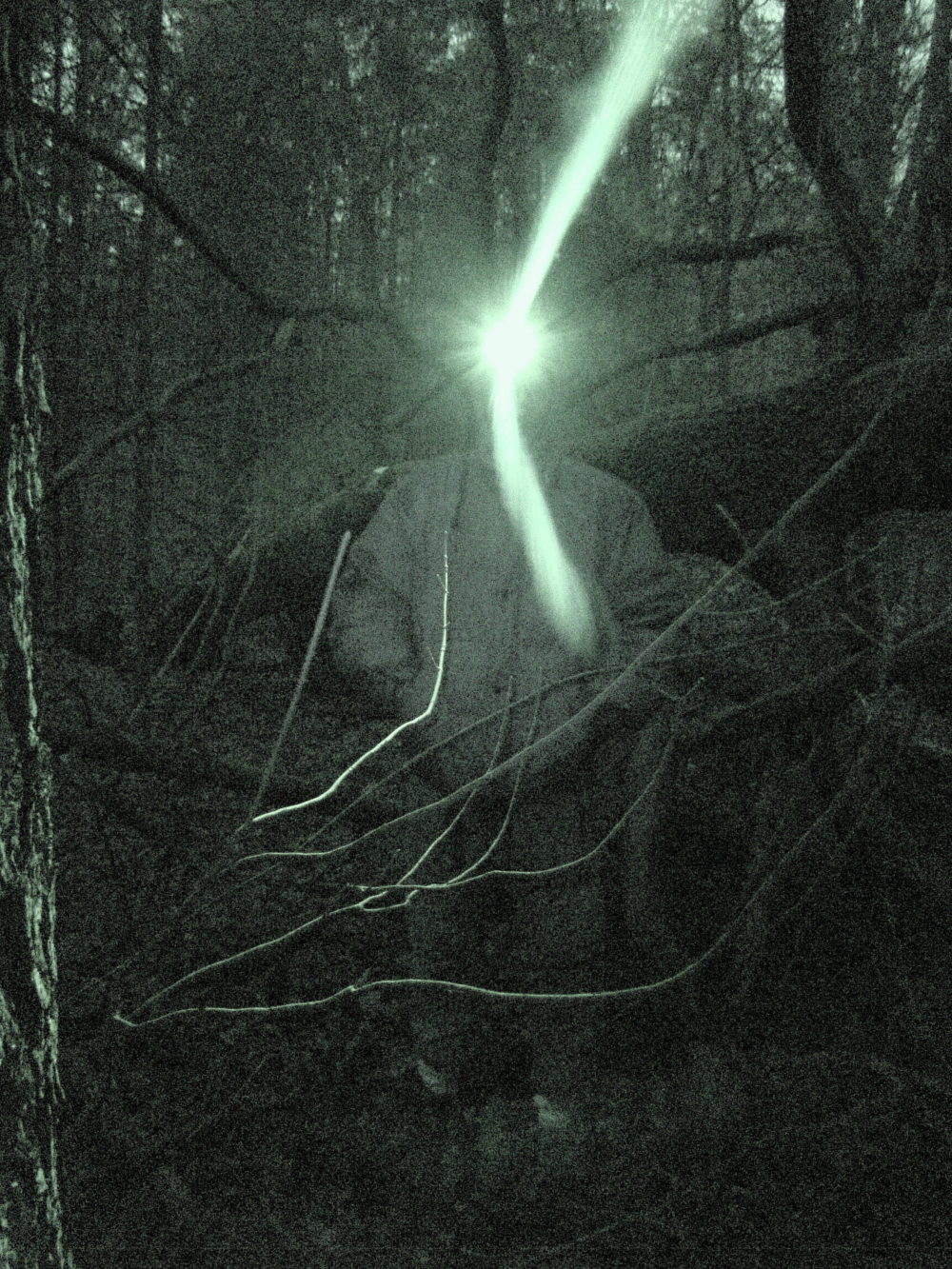
How long did it take you to leave Moscow?
I planned to leave r*ssia long time ago and started the process of immigration a long time before the full-scale invasion started. One needs a lot of funds and resources to have the ability to relocate one’s family to another country, so it took me years to accumulate those funds and to finally start the process, which was also interrupted by the covid pandemic. I immediately left the country on the day when a full-scale invasion started, as it was not morally possible and not safe for me and my partner (who is Ukrainian) to remain there.
In a post you state: “Russian artists should accept their personal responsibility and admit the imperialistic and colonising approach of Russian culture and politics throughout Russian history.” The situation Russian artists are facing these days – even when being Anti-war-activists – is that they are met with suspicion and are expected to justify themselves. I’m wondering what more you can do than to speak out loud?
I see just a few r*ssian artists who openly speak up against the regime and the genocide of Ukrainians, and who help Ukrainian military and volunteers. Yes, r*ssian artists are met with suspicion abroad, but it is the consequences they should accept and acknowledge all the things that their home country did to other nations. More so they should spread the word about the ways to help Ukraine and actively participate in volunteering initiatives.
“An oppressive, aggressive, imperialistic regime.”
There is this diffuse cloud of guilt that you are confronted with that is mostly based on the concept of nationalism which I feel is very difficult. How do you feel about that?
The concept of r*ssian nationalism is very strong point in the narrative of r*ssian regime: r*ssia “having its own way” or “being the greatest country in the world”. R*ssian regimes always erased national and ethnic identities throughout its history and institutionalised racism and ethnic r*ssian supremacy. I am always surprised when I meet USSR apologists who live in comfortable European cities. They tell me that USSR had a perfect society with no racism, a happy working class and equal rights. It was completely the opposite — oppressive, aggressive, imperialistic regime. To acknowledge this you can just read a few history books and learn about the Gulag, Stalin’s concentration camps which killed millions; about the Holodomor, the Great Famine in Ukraine which killed millions of Ukrainians; the “Pale of Settlement” – a border line which the Tsarist regime made for Jewish people to settle away from the central cities of r*ssian empire and which existed for a few hundred years. There are a lot of historical events throughout the history from old times until now when the r*ssian regime committed genocides, war crimes, mass executions, famines and other crimes against humanity. It was always imperialistic and colonialist, either it was the Tsar or so-called “communists”. The USSR and r*ssia cant be anti-imperialist, cause they have themselves executed the models of empires with all the signs of it. It is common to call r*ssia “a prison of nations” and this name speaks for itself.
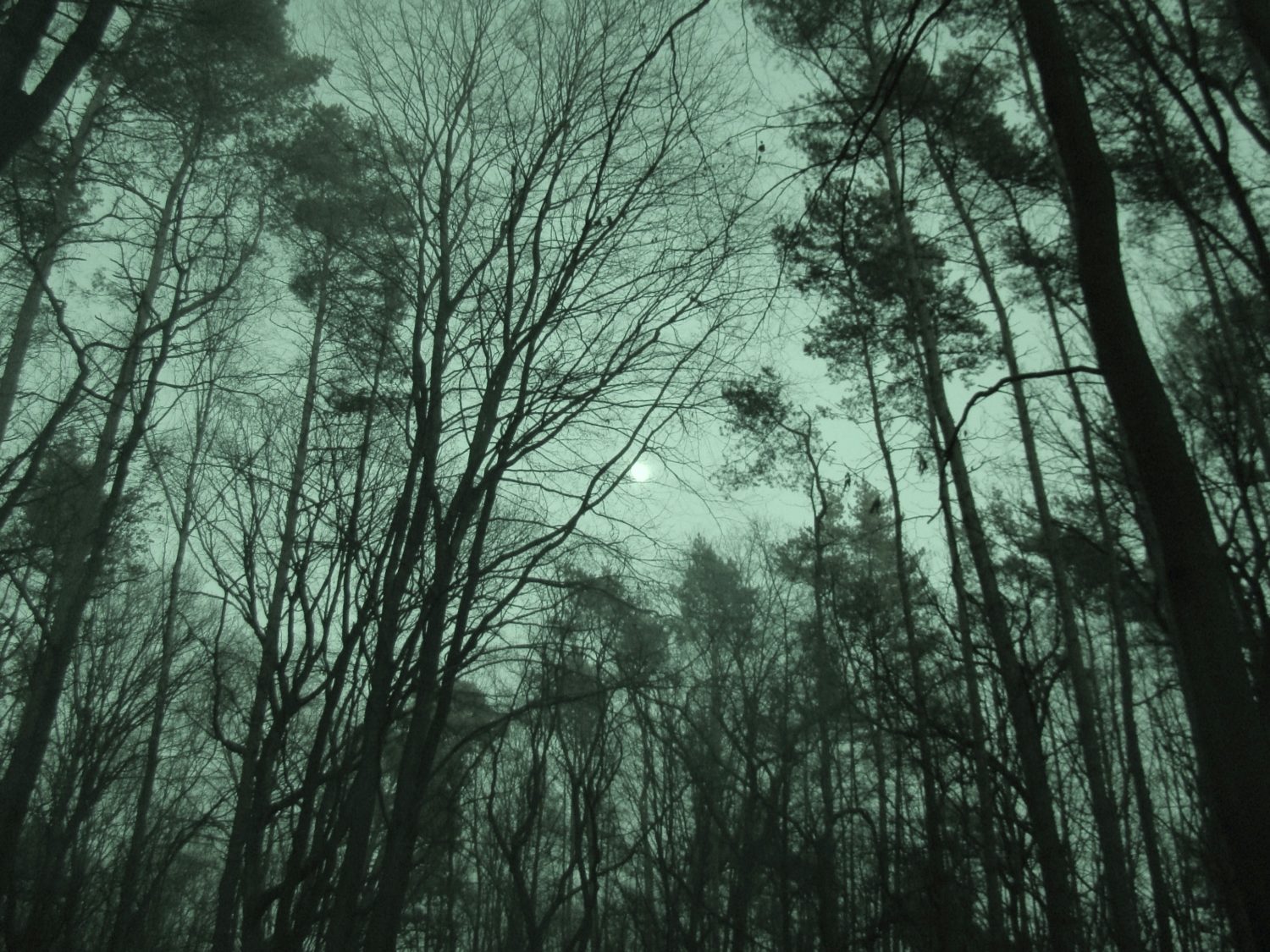
What was your experience of the Russian and Ukrainian music scenes in the last decade or so? How has it changed being a Russian musician? From the outside, it feels like censorship has gone from bad to worse within Russia itself, but this doesn’t necessarily have an effect on electronic music (especially when it’s wordless).
The Ukrainian electronic scene always inspired me — I find Ukrainian artists and communities very unique in their unity and musical quality. I spent my best times in Kyiv clubs, listening to local DJs and producers. Ukrainian society fights for freedom and you can feel it in the music culture too.
Speaking of r*ssian electronic scene – I can’t see any unity there. Big venues and festivals being run by greedy people and controlled by the police. I was not a part of the r*ssian “techno-scene”, but it’s sad to see most of those artists keeping silent about the war in Ukraine. It’s also ridiculous to see posts from bigger artists saying that they are “not confident in politics”.
How do we make sure industrial music, noise, heavy techno, are a music of peace and liberation – and be sure our support for resistance remains against violence?
Industrial music, noise and heavy techno can for sure be a music of resistance, of fighting for peace and liberation, it all depends on the context. Music is always political, and the genre or style is only a tool which helps to transform the message of protest into the form of sound, be it noise or disco music or heavy techno. One should acknowledge that when distancing oneself from the Political in a sound, you are distancing yourself from the essence of what Sound is.

Maybe the overall question is: how do aesthetics correlate with the Political? Can you detect “dissident” sounds? Is this of any importance to you?
It all comes from the context and it could not be detached from it. Thus, we should learn more about the history and the contexts where for example techno and house music took their roots from. Not to blindly experience the genre itself but to understand and appreciate the communities which brought those genres to life, to know the struggles of those communities and acknowledge it.
Here’s a good quote from Stas Sharifullin’s recent research called “Becoming-Resonant: on the political potential of indigenous sonic practices in ‘the prison of the nations” which he presented during the CTM festival:
“A sound is always rooted in certain contexts and inextricably entangled with the causal relationship of the moment of its appearance. And if it appeared as a result of violence, one simply cannot unthink it even if finding themselves in the pure ecstasy of imagining a variety of different political possibilities.
[…] studying sound in the domain of political should be done through examination of power dynamics, feedback and communication—all under scrutiny. So it might be useful for sound scholars to get familiar with the methods of critical theory, political and social science, cybernetics also known as the theory of control, decolonial, postcolonial and gender studies—and of course many more. […]”
“My music comes out of the context of being raised and living in poor suburban areas”
Under your Buttechno alias you deconstruct the musical concept: the rhythmical textures, sonic signatures, certain vibes of the dancefloor to fill them with your own atmospheres, attitude, and style. This endeavour follows – as I understand it – also an analytical listening and a deeper understanding of how these languages work. You appropriate those structures, inhabit them. Usually the sounds are attached to a scene too, to certain ideologies. But you’re more interested in the aesthetics, not the socio-cultural context of certain genres. Or maybe I’m wrong?
This is wrong, as my music comes out of the context of being raised and living in poor suburban areas. This is exactly what socio-cultural context is, and it for sure affected my works in terms of sound and representation. It is one of the most important contexts of my work in general. It is also reflected in my visual works, such as graphics, videos, record covers, track names and exhibition works.
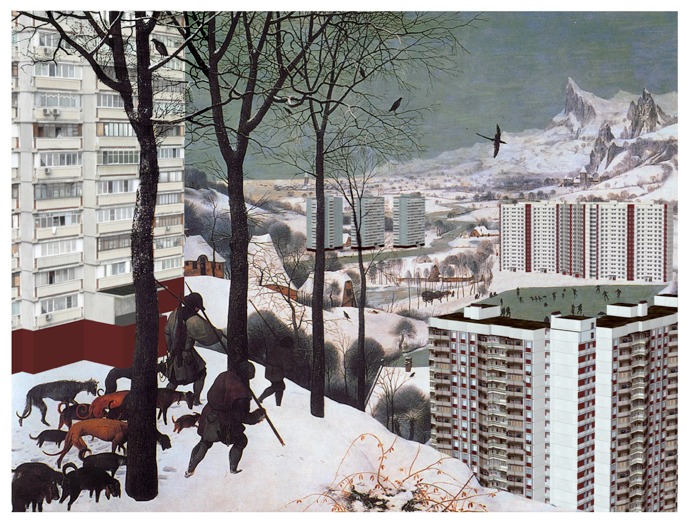
There is no way you can live off producing experimental music in r*ssia, it is not recognized as a job there. This kind of music is marginalised and being perceived as “music for junkies and perverts”. I started performing in a small underground clubs ran by enthusiasts and back then I was a part of a small crew who ran the NII venue, so yes – I can 100% relate to those marginalised underground music communities, as I was an active part of it and of course spent a lot of time organising live events and parties without any profits. I was not just listening to it at home.
Which platform is the best for making contributions? (i.e., who takes the smallest amount of money away before it gets to charity!)
It’s always better to donate directly, for example to LIVYJ BEREH or ANGELS OF KYIV volunteer groups.
What is your perspective on the future? Are you planning on staying in Berlin? Do you have friends around that you can meet IRL or has everything shifted towards digital communication?
I always had plans to move here and I have friends and colleagues with whom I actively work here. It was Moscow where I had far fewer colleagues and like-minded people than here. So here I have less digital communication and more field and studio work.
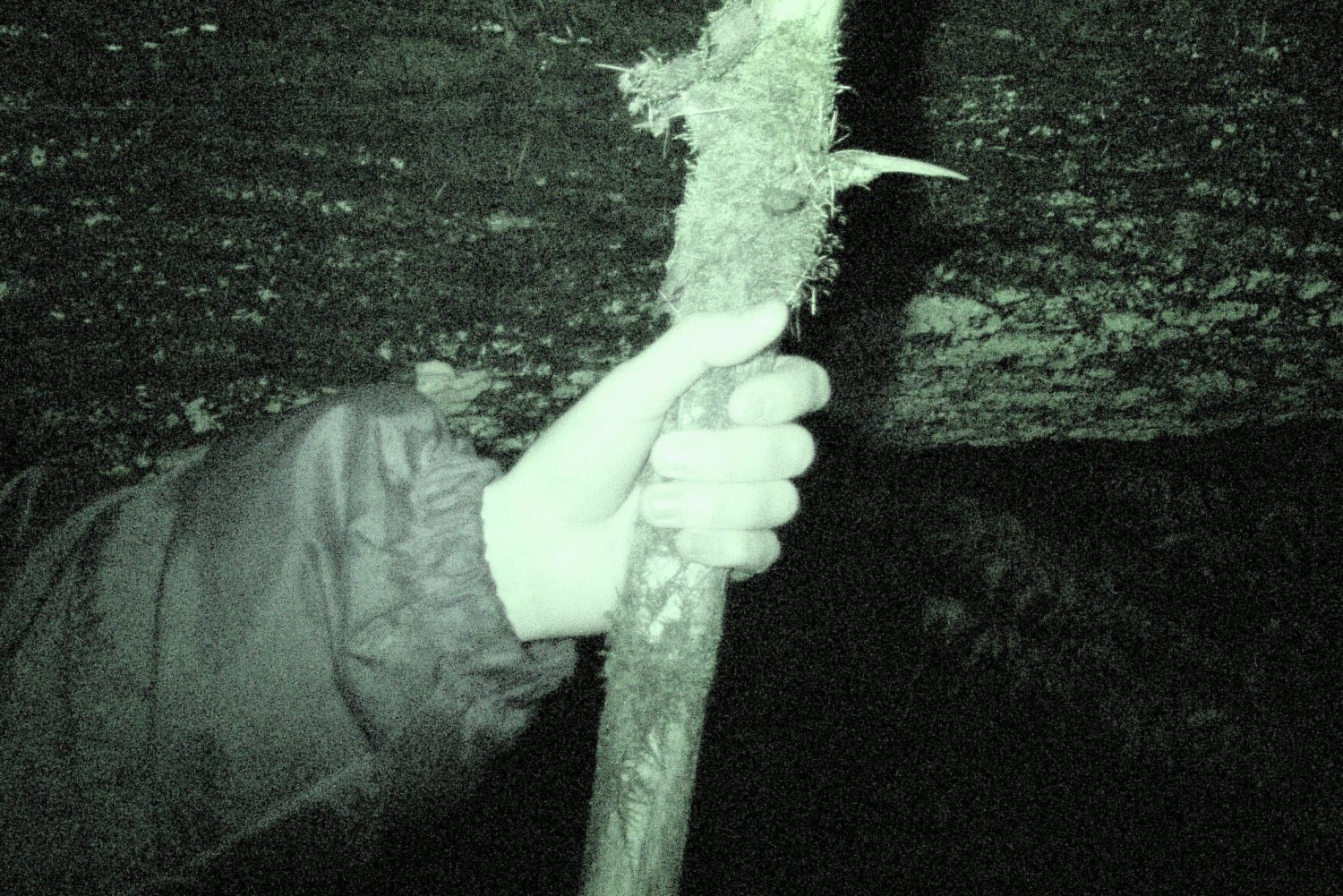
Whatever the state does, Russian culture remains important and influential. What are the aspects about it you like the best?
You can’t detach this culture from the construct of the “state”, which throughout the years of its existence killed millions of lives and still keeps doing it. Most of the famous Soviet artists were actually Ukrainian, Jewish, Georgian and other nationalities. They were not r*ssian. The r*ssian regime erased their national identities and is continuing to do so nowadays.
And if we are not detaching the Political from sound and from the art in general, then r*ssian artists, and western researchers should do their best to get the right context of what is really happening there, acknowledge it, stop being silent about it and stop “westsplaining” it. This will bring much more understanding and will help to fight against this bloody regime until its end.
Thanks much for the interview!
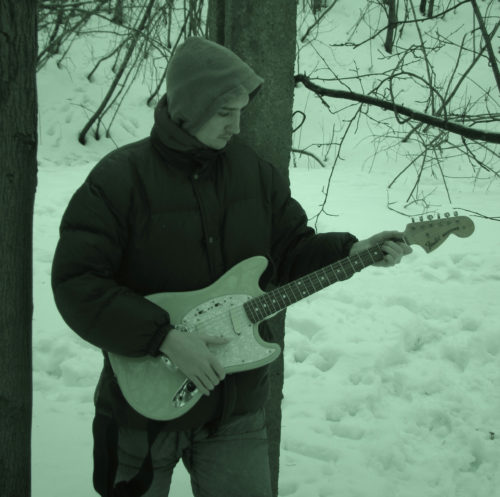
Pavel Milyakov